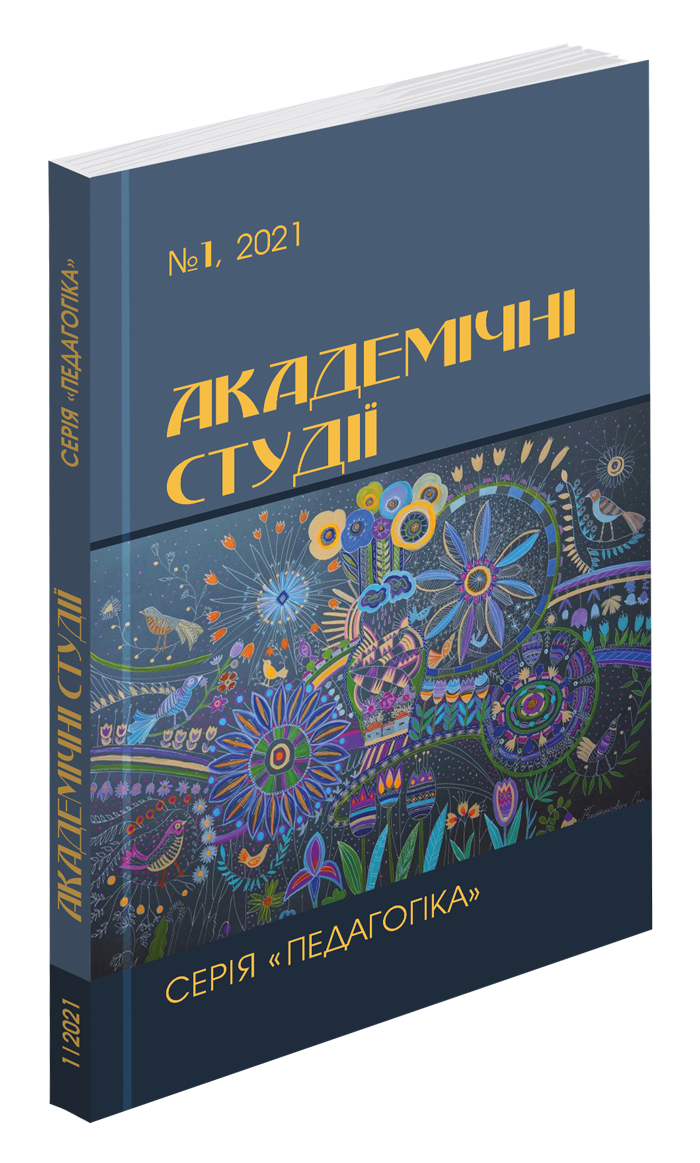Abstract
The article deals with the didactic foundations of structuring the content of philological knowledge in Foreign Language for Specific Purposes (ESP). Structuring the content of philological knowledge is a process that consists in the systematic construction of the educational process and is aimed at processing, targeting scientific information and adapting it to educational conditions. It is stated that the philological training of a future specialist provides the compulsory study of the discipline “Foreign language for Specific Purposes”. The principles and methods of teaching ESP are considered in the article. It is reported that there are inconsistencies in the curricula regarding to the duration of studying the discipline and the corresponding course for the successful implementation of the principles of continuity, intersubject coordination, as well as intersubject relations regarding to the study of ESP and disciplines of the cycles of fundamental and professional training. A brief description of our manuals in the discipline “Foreign Language for Specific Purposes” is given in the scientific piece of writing.
References
Бєляк О.М. Структурування навчальної інформації як складова підготовки студентів немовних спеціальностей. Наука і освіта. №3. 2014. С. 12–15.
Вадаська С.В. Значення організації навчального процесу для студентів немовних спеціальностей. Матеріали XІ Міжнародної науково-практичної конференції «Новітні освітні технології: міжнародний досвід» (21 січня 2016 р.). Київ : ЦУЛ. С. 16–18.
Мартинюк А. Проблема структурування знань та її значення в навчальному процесі. Вісник Львів. ун-ту. 2008. № 24. С. 28–37.
Редько В., Пасічник В. Забезпечення наступності іншомовної освіти в системі «старша школа – ВНЗ»: зацікавлений погляд на проблему. Рідна школа. № 11 (листопад). 2013. С. 21–30.
Триндюк В.А. Німецька мова: Методичні рекомендації до практичних занять з «Іноземної мови за професійним спрямуванням» для студентів відділення Початкова освіта. Луцьк : Луцький педагогічний коледж, 2020. 44 с.
Klimova, B. (2015). Developing ESP Study Materials for Students at a Non-philological Faculty. Procedia – Social and Behavioral Sciences 197:104-107. DOI: 10.1016/j.sbspro.2015.07.063. URL: https://www.researchgate.net/publication/282599394_Developing_ESP_Study_Materials_for_Students_at_a_Non-philological_Faculty.(Last accessed: 24.03.2021)
Donesch-Jezo, E. (2012). English for Specific Purposes: What does it mean and why is it different from teaching General English? Conference: Confluence II, At: Tulsiramji Gaikwad-Patil College of Engineering and Technology, Nagpur, India. URL: https://www.researchgate.net/ publication/308914571_English_for_Specific_Purposes_What_does_it_mean_and_why_is_it_different_from_teaching_General_English. (Last accessed: 24.03.2021).
